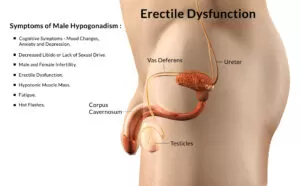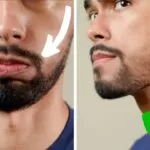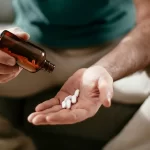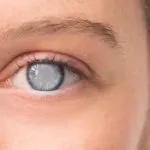The root cause of Erectile Dysfunction
It is quite imperative to know the root cause of erectile dysfunction (ED) since it is a complex and sensitive condition that affects millions of men worldwide.
It is characterized by the persistent inability to achieve or maintain an erection sufficient for satisfactory sexual performance.
While ED can be a distressing and frustrating experience, it is essential to recognize that it is often a symptom of an underlying health issue rather than a standalone condition.
In this comprehensive article, we delve into the various causes OR individual root cause of erectile dysfunction, exploring both physical and psychological factors that can contribute to its development.
Physical Causes of Erectile Dysfunction
Cardiovascular Diseases: High blood pressure, atherosclerosis (narrowing of the arteries), and other cardiovascular conditions can impede blood flow to the penis, leading to difficulties in achieving or sustaining an erection.
Diabetes: This singular root cause of erectile dysfunction can cause nerve damage (neuropathy) and blood vessel abnormalities, increasing the risk of erectile dysfunction.
Additionally, uncontrolled blood sugar levels can adversely affect the nerves and blood vessels essential for normal erectile function.
Hormonal Imbalances: Low levels of testosterone, the primary male sex hormone, can contribute to erectile dysfunction. Hormonal imbalances can occur due to conditions such as hypogonadism, thyroid disorders, and adrenal gland abnormalities.
Neurological Conditions: Conditions affecting the nervous system, including multiple sclerosis, Parkinson’s disease, and spinal cord injuries, can disrupt the communication between the brain, nerves, and blood vessels involved in the erection process.
Medications and Substance Abuse: Certain medications, such as antidepressants, antihistamines, and blood pressure medications, may have side effects that contribute to erectile dysfunction. Substance abuse, including excessive alcohol consumption and illicit drug use, can also play a role.
Psychological Causes
Anxiety and Stress: High levels of anxiety, stress, or performance-related pressure can interfere with the relaxation and focus required for a successful sexual encounter.
The resulting mental tension can inhibit the physiological responses necessary for achieving and maintaining an erection.
Depression: Depression can significantly impact a person’s overall well-being, including sexual health. The loss of interest in previously enjoyed activities, decreased libido, and changes in brain chemistry associated with depression can contribute to erectile dysfunction.
Relationship Issues: Difficulties within intimate relationships, including poor communication, unresolved conflicts, and lack of emotional connection, can contribute to sexual problems, including ED.
Past Trauma or Sexual Abuse: Individuals who have experienced past traumatic events, including sexual abuse, may develop psychological barriers that hinder sexual performance and cause erectile difficulties.
Body Image and Self-esteem: Negative body image and low self-esteem can influence sexual confidence, making it challenging to relax and engage in sexual activities fully.
Lifestyle Factors:
Obesity: This is another cause of erectile dysfunction. Excess weight can lead to hormonal imbalances, increased inflammation, and decreased testosterone levels, all of which contribute to erectile dysfunction.
Smoking: Tobacco use damages blood vessels and restricts blood flow, adversely affecting erectile function.
Sedentary Lifestyle: Lack of physical activity and a sedentary lifestyle can impair cardiovascular health, leading to poor blood flow and increasing the risk of ED.
Poor Diet: Diets high in processed foods, saturated fats, and refined sugars can negatively impact vascular health and contribute to erectile dysfunction.
YOU MAY LIKE:What Causes Infertility in Men
What are the remedies?
Remedies for erectile dysfunction vary depending on the underlying cause and individual circumstances. It is important to consult with a healthcare professional to determine the most appropriate treatment options. Here are some common remedies:
Lifestyle Changes
- Regular Exercise: Engaging in regular physical activity improves cardiovascular health, promotes blood flow, and can help alleviate erectile dysfunction. Aim for at least 30 minutes of moderate-intensity exercise most days of the week.
- Healthy Diet: Emphasize a diet rich in fruits, vegetables, whole grains, lean proteins, and healthy fats. Limit the intake of processed foods, saturated fats, and sugary snacks, as they can contribute to vascular problems.
- Weight Management: If obesity or excess weight is a contributing factor, losing weight through a combination of a balanced diet and regular exercise can improve erectile function.
- Smoking Cessation: Quitting smoking is crucial, as tobacco use damages blood vessels and restricts blood flow. Seek support from healthcare professionals or smoking cessation programs for assistance.
- Alcohol and Drug Moderation: Limit alcohol consumption and avoid illicit drug use, as they can impair sexual function.
Medications
- Oral Medications: Drugs like sildenafil (Viagra), tadalafil (Cialis), and vardenafil (Levitra) are commonly prescribed to enhance erectile function. These medications work by increasing blood flow to the penis, facilitating erections. However, they require a prescription and should be used under medical supervision.
- Hormone Therapy: If hormonal imbalances are causing erectile dysfunction, hormone replacement therapy may be considered. Testosterone replacement therapy, in particular, can help improve sexual function in men with low testosterone levels.
Psychological Interventions
- Counseling or Therapy: If psychological factors, such as anxiety, stress, or relationship issues, contribute to erectile dysfunction, individual or couples therapy can be beneficial. Cognitive-behavioral therapy (CBT) techniques may be used to address negative thoughts and behaviors associated with sexual performance.
Medical Treatments
- Vacuum Erection Devices (VED): VEDs are non-invasive devices that create a vacuum around the penis, drawing blood into the organ and facilitating an erection. A constriction band is placed at the base of the penis to maintain the erection.
- Penile Implants: For severe cases of erectile dysfunction that do not respond to other treatments, surgical insertion of penile implants may be an option. These implants provide rigidity for an erection when desired.
Alternative Therapies
- Acupuncture: Some individuals find acupuncture helpful in managing erectile dysfunction. Acupuncture involves the insertion of thin needles into specific points of the body to promote overall well-being and potentially improve sexual function.
- Herbal Supplements: Certain herbal supplements, such as ginseng, L-arginine, and yohimbe, have been used traditionally to treat erectile dysfunction.
However, their effectiveness and safety vary, and it is essential to consult with a healthcare professional before using any herbal supplements.

Remember, it is crucial to consult with a healthcare professional before initiating any treatment for erectile dysfunction.
They can provide a comprehensive evaluation, consider individual circumstances, and guide you toward the most appropriate remedies for your specific situation.
Are Herbs to treat it?
Herbs have been used traditionally to address various health concerns, including erectile dysfunction. While some herbs may have potential benefits, it is important to note that the evidence supporting their effectiveness is often limited and inconclusive.
Additionally, the safety and interactions of herbal remedies can vary, and they may not be suitable for everyone. It is advisable to consult with a healthcare professional before using any herbal supplements to treat erectile dysfunction.
Here are a few herbs that have been commonly associated with potential benefits for erectile dysfunction:
Panax Ginseng: Also known as Korean ginseng, Panax ginseng has been traditionally used as an herbal remedy for sexual dysfunction. Some studies suggest that it may improve erectile function and sexual satisfaction. However, more research is needed to establish its efficacy and safety.
L-arginine: L-arginine is an amino acid that the body converts into nitric oxide, a compound that helps relax blood vessels and improve blood flow. It is available as a supplement and may have a positive impact on erectile function.
However, it can interact with certain medications, so it is important to consult with a healthcare professional before using it.
Yohimbe: Derived from the bark of the African yohimbe tree, yohimbe has been used as a traditional aphrodisiac. It contains an active compound called yohimbine, which is believed to enhance sexual function.
However, yohimbe can have significant side effects, including increased heart rate and blood pressure, and it may interact with certain medications. It is generally not recommended without medical supervision.
Horny Goat Weed: Horny goat weed is an herb that has been used in traditional Chinese medicine to treat various conditions, including erectile dysfunction. It contains a compound called icariin, which has shown some potential in improving erectile function.
However, more research is needed to confirm its effectiveness and safety.
It is important to remember that herbal remedies should not replace medical advice or prescribed treatments.
If you are considering herbal supplements for erectile dysfunction, it is best to consult with a healthcare professional who can assess your individual situation, provide guidance, and monitor your progress.
They can help determine if herbal remedies are appropriate for you and ensure they do not interfere with any other medications or existing health conditions.
Conclusion
Erectile dysfunction is a complex condition influenced by a variety of physical, psychological, and lifestyle factors. Understanding the causes of ED is crucial for developing effective treatment strategies and addressing the underlying issues.
If you or a loved one is experiencing persistent erectile difficulties, it is advisable to consult a healthcare professional who can help identify the specific cause and provide appropriate guidance and treatment options.
Remember, seeking timely medical advice can lead to a better understanding of the problem and pave the way for a healthier, more fulfilling sexual life.
Causes of Hypertension in Young Adults
Oligospermia Natural Treatment
Home Remedies for Motion Sickness
How To Live With HIV-Positive Person

A graduate of Computer Science and Information Management Technology. Diploma – Caregiving, Certificates – Dementia and Diabetes Awareness and Management. A researcher, blogger, songwriter, singer and acoustic guitarist. Born in an environment where natural talents such as healing are imparted at our natural birth. This natural talents of healing is the result of our genetic inheritance and the training from family environment.























